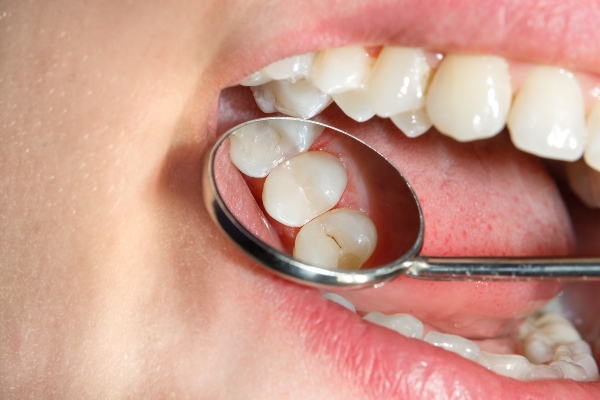Pediatric Dentistry: When Does a Child Need Dental Fillings?

Pediatric dentistry is an important branch of dentistry that is tailored to ensure young people receive quality dental care. Pediatric dentists can help parents set their kids up for a lifetime of good oral health. It is usually distressing to learn that a child has a cavity in one of their teeth. If cavities are not treated, it can lead to negative consequences for both the children and parents. Fortunately, a pediatric dentist can keep your kid’s teeth healthy.
Pediatric dentistry and dental fillings
Tooth decay is basically the breakdown of tooth enamel. Tooth decay can eventually lead to cavities, which are holes in the teeth. Tooth decay can be caused by bacteria. It occurs when foods that contain carbohydrates are left on the teeth.
Such foods include soda, milk, candy, cake, raisins, fruit juices, bread and cereals. Bacteria that live in the mouth often change these foods, making acids. The combination of food, bacteria, saliva and acid form a substance, referred to as plaque, that ends up sticking on the teeth. After some time, the acids made by bacteria eventually eat away at the tooth enamel, which causes cavities.
Children at risk for tooth decay
All kids are at risk of developing tooth decay because all kids have bacteria in their mouths. But certain factors can raise a child’s risk for it. These include poor oral hygiene, a diet high in starches and sugars and high levels of the bacteria that end up causing cavities. Other factors include less saliva flow than normal and water supply that has either minimal or no fluoride in it.
Dental filling process
If a kid has a cavity in a baby tooth, it often means that bad oral bacteria are eating away at the structure of the tooth and causing decay. To stop the process of decay, a small drill will be used by the dentist to remove the infected area. The hole will then be sealed with filling material. Several different types of fillings can be used by a dentist.
This will depend on the extent of the decay. The dentist will determine the ideal material for the situation of the child. After it has been applied, the filling will help rebuild the tooth structure. This will ensure it can function normally and help prevent further decay.
Takeaway
If not treated, dental decay can become worse and eventually lead to more serious oral health problems. Some problems caused by childhood cavities include advanced dental infections, mouth pain and gum disease. Others also include damage to permanent teeth, disrupted speech development and even tooth loss. Treatment will depend on a myriad of factors.
These include the symptoms of the child, age and general health. It will also be based on the severity of the condition. Most times, treatment involves the removal of the decayed part of the child’s tooth and then replacing it with a dental filling. If you want to find out more about pediatric dentistry for your child, talk to your pediatric dentist.
Request an appointment here: https://www.hvkidsmiles.com or call Hudson Valley Pediatric Dentistry at (845) 363-4177 for an appointment in our Middletown office.
Check out what others are saying about our services on Yelp: Read our Yelp reviews.
Recent Posts
Tooth decay is one of those dental issues that most people will deal with at some point in their lives. Fortunately, dental sealants are a preventative treatment that can help protect teeth from decay. If you are a parent considering protecting your child’s teeth with sealants, you may be wondering about the process. This article…
If your child has recently gotten dental sealants, it is wise to get a toothbrush that cleans the teeth and does not irritate or damage the sealant. The kind of toothbrush that will remove plaque, reach all regions of your child’s mouth and be best for their oral health depends on their particular dental requirements.…
Dental sealants are a preventive treatment that can greatly benefit young children who have just had their permanent molars come through. Sealants can also benefit children with baby teeth, particularly those vulnerable to decay. The following article discusses the numerous benefits of dental sealants for children.Dental sealants for children reduce the risk of dental decay…
While most people are familiar with dental sealants as a preventative treatment for a child's teeth, it is essential to recognize their broader applications. Dental sealants can serve as a remedy for sensitive teeth or even reverse the early stages of a developing cavity. This treatment can also significantly improve the health of a tooth…


